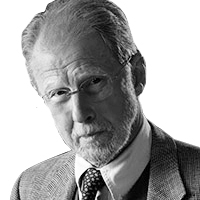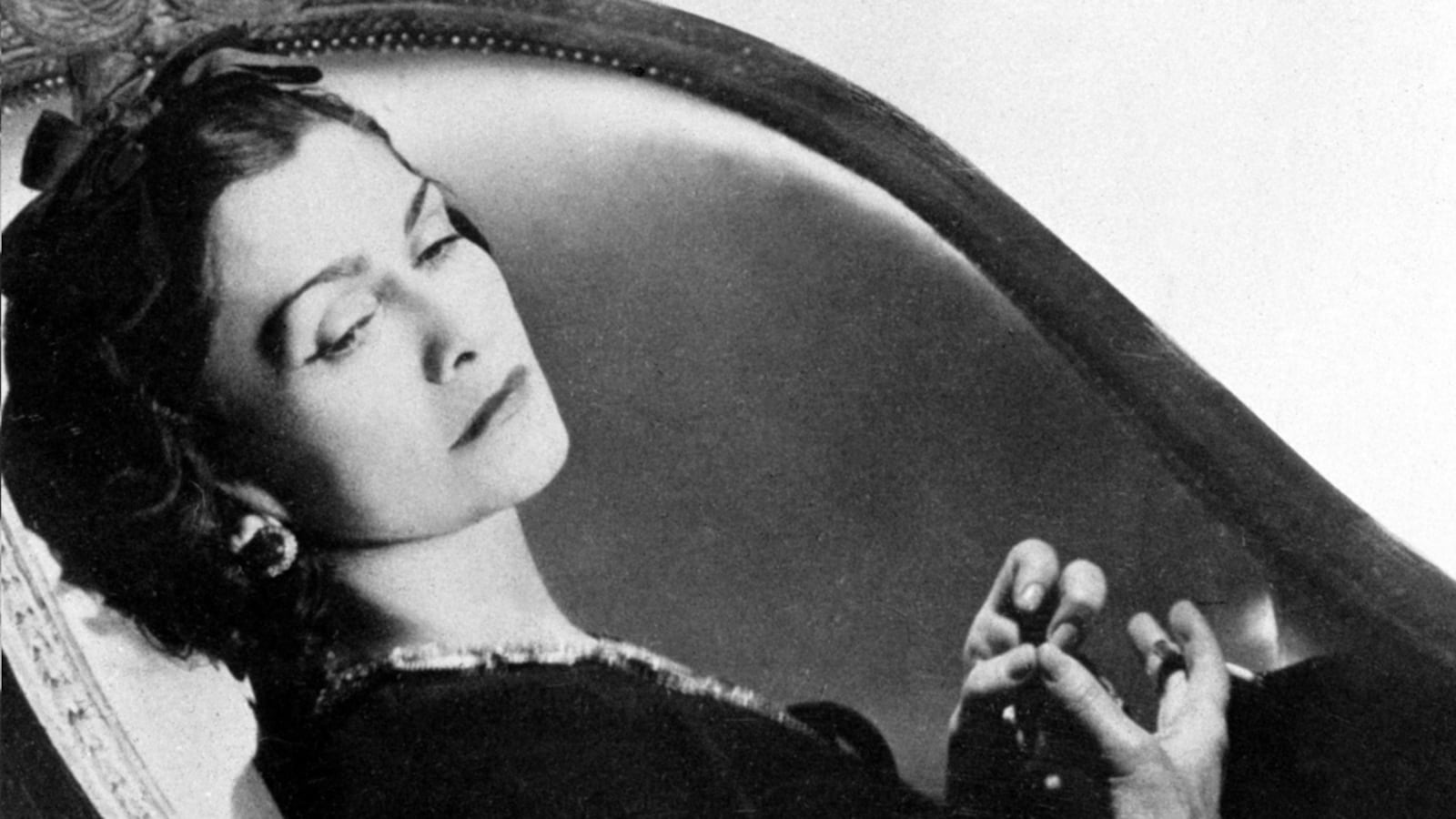When the Second World War came to an end in Europe, my uncle Sir Alexander Korda was the first filmmaker to reopen offices in Germany and Austria. Not only did he move quickly to place a London film office in both countries, he also managed to make the first major postwar film—Carol Reed’s The Third Man, with a supporting cast full of Austrian actors—in what had, until recently, been the Reich. Somebody once asked him if he wasn’t worried that some of those working for him might have been Nazis. He raised an eyebrow, and sighed wearily. “Most of them,” he said. “Perhaps all of them. My policy is simple. I don’t ask them what they did during the war, and they don’t tell me.”
Alex’s phrase predated Bill Clinton’s policy about gays in the military by several decades, but it should not be supposed that he was an innocent. Alex had been born a Hungarian Jew; he had survived Bela Kun’s “red terror” by becoming deputy commissar for film production; he lived through Europe’s first anti-Semitic “white terror” when Adm. Miklos Horthy’s Fascists took control of Hungary; and he made films in Vienna and Berlin during the rise of the Nazis. Leni Riefenstahl and Gen. Ernst Udet of the Luftwaffe were friends of his, but throughout the '30s he also helped old friends who were Jewish to escape to Paris, or London, or Hollywood, or New York. He knew perfectly well what would happen to them if they couldn’t get out of Germany. On the other hand, he was a European, a cosmopolite, a realist, as well as a friend of Winston Churchill’s and a secret agent for MI6. He was nevertheless willing to overlook most things, including Nazi connections, in people he loved, in people of talent, and in people he needed, and as a Hungarian he understood that in time of war people often do things that may later prove embarrassing or difficult to explain.
Sleeping with the Enemy: Coco Chanel’s Secret WarBy Hal Vaughn304 pages. Knopf. $27.95
Those of us who have not had the experience of being invaded by the Germans are in no position to criticize those who accommodated themselves to German occupation, with its ferocious punishments for those who expressed even the mildest opposition. And those of us who are English may wonder what life in occupied Britain would have been like if the Germans had succeeded in invading and defeating us in the summer of 1940. Would Lord Halifax have played the role of Marshal Pétain in a collaborationist government, with the British Fascist leader Sir Oswald Mosley as his prime minister? Would the Germans have replaced King George V with his brother, the outspokenly pro-German and anti-Semitic Duke of Windsor, with the Duchess as “Queen Wallis”? Does anybody seriously doubt that London tailors, bespoke bootmakers, hoteliers, and restaurateurs would have been bowing and scraping to “Herr General,” “Herr Obergruppenführer,” and “Herr Reischlieter,” and would anyone have asked questions about the Channel ferries carrying British and foreign-refugee Jews on the first stage of their journey to secret locations deep in Poland from which they would never be heard of again?

Thus, I am not among those who are shocked or surprised to learn that Coco Chanel, France’s iconic fashion innovator and grande couturière, collaborated, slept with a German agent, dabbled in Nazi foreign policy, or shared the opinions about Jews of her ex-lover the Duke of Westminster. She joins a distinguished list of French collaborationist artists, including Maurice Chevalier, Jean Cocteau, Sacha Guitry, Serge Lifar, and Edith Piaf, not to speak of the owners and headwaiters of the great restaurants of Paris, shops like Hermès and Cartier, or the owners and the concièrges of the great Paris hôtels de luxe. “Il faut vivre” might almost be the French national motto from 1940 to June 1944, but who is to say ours would have been any different if the Germans had paraded victoriously through London and Generalfeldmarschall Von Runstedt made his headquarters at Claridge’s? After all, even General de Gaulle, when told that somebody was a “Pétainiste,” remarked disparagingly that the man in question was at worst “Pétainisant,” a distinction which, for those who don’t speak French, marks the difference between somebody who believes in Pétain’s regime, and somebody who merely finds it prudent to say nothing bad about him for the moment.
Unfortunately for Chanel, she falls into the first category. Fiercely anti-Semitic long before it became a question of pleasing the Germans, she became rich by catering to the very rich, and shared their dislike of Jews, trade unions, socialism, Freemasons, and communism, as well as their belief, after 1933, that Hitler was a great European. Plenty of people took the view “Better Hitler than Stalin,” and assumed that that was the only choice, so Chanel had plenty of company on both sides of the Channel, and also in the United States, where Joseph P. Kennedy, among others, held exactly the same opinions and exclaimed them firmly.
Three things are very clear about Chanel: first of all, she was a genius who changed the whole way in which women dressed and thought about themselves; secondly, that she was a brilliant and ruthless businesswoman, in an age when that was unusual; thirdly, that she was too politically naive to realize when she was backing the losing side, or to make the delicate transition from full collaboration, to reluctant collaboration, to enthusiasm for de Gaulle and the Allies. It did not help that she was sleeping with the enemy, in the form of Baron Hans Günther von Dinklage (nicknamed “Spatz”), who was handsome, fluent in French, charming, sophisticated, and if not, as Vaughan alleges, a German “master spy,” at the least a Nazi, a man with close connections to the SS, an Abwehr agent, though not a particularly skilled or effective one, and one of those cultured, well-dressed figures who, from Lisbon to Kiev, and from Oslo to Athens, carried out the rewarding business of exploiting occupied Europe for the benefit of the Third Reich. As a German agent before they invaded France, he spied on the French fleet at Toulon, though it is hard to see what information he sent home that could not have been gotten from Jane’s Warships of the World, but then, as Graham Greene was so fond of saying, the first person a spy has to deceive is the one to whom he is sending information. Dinklage’s specialty was for working his way into French society as un homme du monde, and for this he did indeed have a gift.
Hal Vaughan has done a stupendous job of research, but since Chanel was interrogated by a French court for collaboration after the war and got away with it, the exact details of her foolish participation in Dinklage’s murky plans to use her as a way to negotiate a separate peace—hundreds of Germans had plans and hopes no less fantastic than this one by 1944—and the still-murkier plots to safeguard her assets, are not of compelling interest. What is of interest is Chanel herself, and on the subject Vaughan draws a brilliant portrait. From her birth as the child of impoverished peasants, to her schooling at the hands of nuns, to her first step as a seamstress in Paris and meteoric rise as the mistress of ever-more wealthy and attractive men, while at the same time fixing her beady eyes on the idea of creating a simpler, more elegant form of fashion for women who were becoming more and more emancipated, he tells a terrific and fascinating story. Chanel took women out of corsets and put them into the “simple little black dress,” the perfectly tailored suit, the bell-bottom sailor pants, and jersey tops. She stripped away not only the corsets, but all the frills and frou-frous of fashion—simplicity and elegance constituted her aesthetic, and she brought it everywhere, to London, where she was at much as home as in Paris, to New York, where she was the darling of fashion editors, even to Hollywood, where despite her anti-Semitism she worked for a time for Sam Goldwyn, trying to bring fashion to film costuming.
She was the first designer to put her stamp not just on dresses, but on everything a woman might wear: handbags, shoes, costume jewelry and real jewelry, hats. The Chanel touch was admired everywhere between the wars, as was her brilliant idea of inventing her own perfume, Chanel No. 5, which became the iconic scent of the '20s, '30s, and '40s, with its unmistakable, elegant bottle. When Marilyn Monroe was asked what she wore to bed, she replied, “Chanel No. 5,” and when Jackie Kennedy accompanied her husband to Dallas, she wore a pink Chanel suit and pillbox hat. Chanel transformed herself into a brand long before the idea was a business commonplace, and the story of how she did it, how she dealt with her Jewish business partner Pierre Wertheimer, a love-hate relationship that nevertheless made her a rich woman, and how she not only survived the occupation, but emerged to triumphantly expand her brand to the point where her mere name was a worldwide asset, all this is a great story, wonderfully told, and full of great characters: her friend Winston Churchill; her lover, the fabulously rich Bendor; the Duke of Westminster; her friend and fellow collaborator Vera Bate, and many others. Sleeping With the Enemy is at its best in the world of the '20s, full of delicious gossip—Misia Godebska “was not the princess drawn by Proust. In her three marriages, she was Madame Thadée Natanson; Madame Alfred Edwards (a very rich businessman and notorious coprophiliac who forced Natanson to relinquish Misia in payment of a debt); and, finally, wife of Spanish painter José-Maria Sert”—great social scenes among the rich and famous as the world unbuttoned itself after the hideous slaughter of World War I, and above all, real insight into the mind, if perhaps not the heart, of Chanel herself.
She remains a fascinating, infuriating, selfish, brilliant, and charming woman, a loyal friend, a shrewd businesswoman, a passionate lover of both men and women, and the very essence of what France is, and what makes it different from, say, Germany, Britain and the United States. She was not only preternaturally chic and sexy all her life, even well into old age, but always fascinating, busy, in love, and living unapologetically on a towering emotional scale—there appear to have been no dull moments or slack times in her life, she was always able to resurrect herself after any setback or disaster, and move on to the next man, the next collection, the next fortune. She was as French as Marianne, and Hal Vaughan brings her to life so vividly that we understand why no less a judge than André Malraux said that “from this century in France only three names will remain: de Gaulle, Picasso, and Chanel.” A national hero, a Spaniard, and a collaborator, an odd mixture, but one understands, reading this book, that Malraux was right and why, and one can only tip one’s hat in admiration to the author, with the gesture that made Maurice Chevalier so famous. It is that rarest of good reads, a biography about a famous person with a surprise on every page. Nancy Mitford, I think, would have loved it, and written a wonderful letter to Evelyn Waugh about it!






